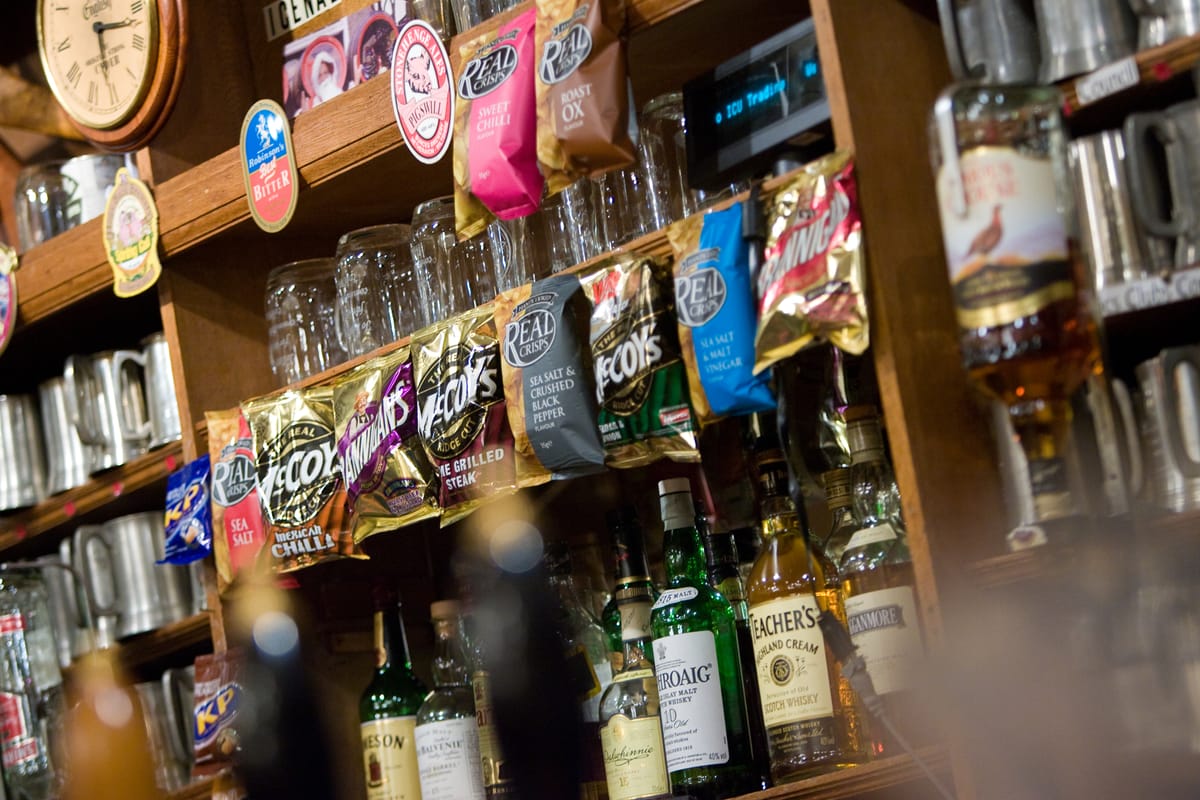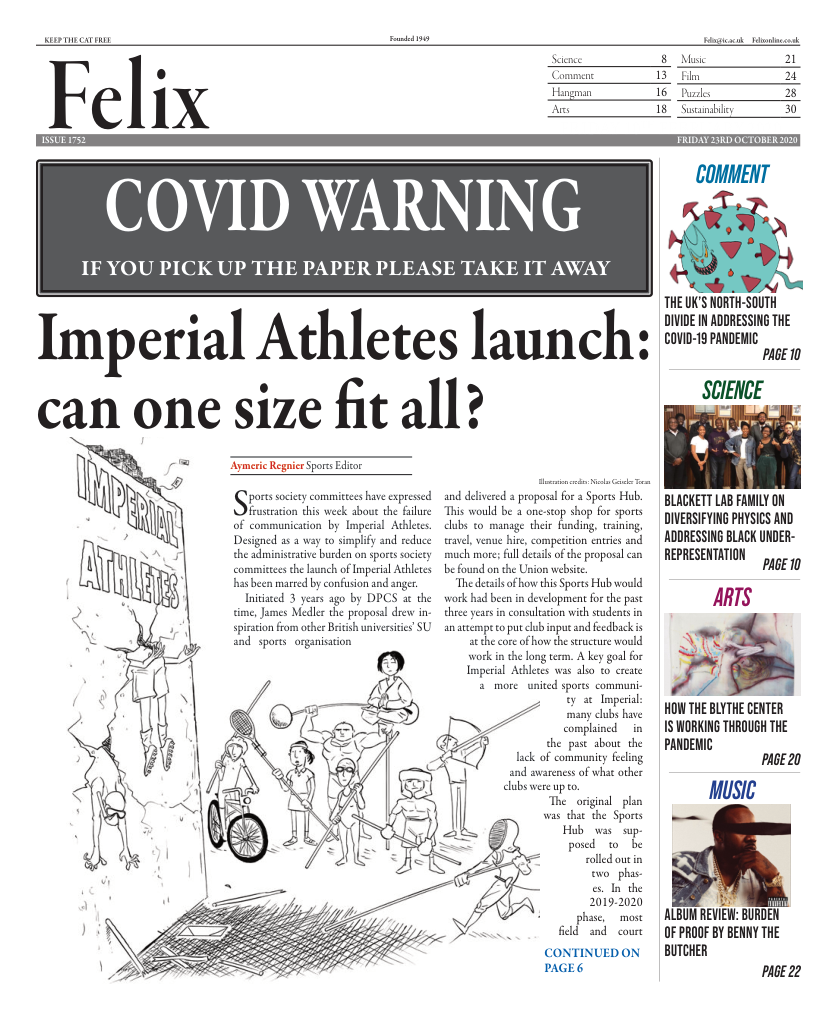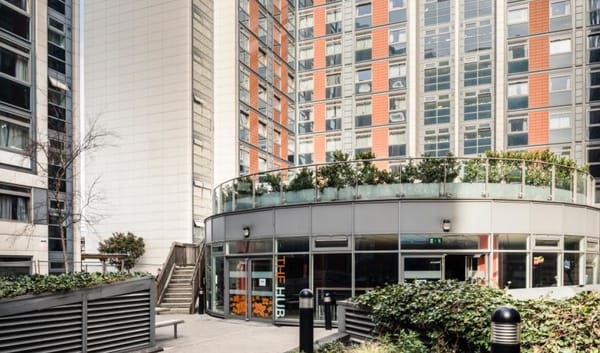Union restructuring results in 20 staff members made redundant
The restructuring was prompted by the uncertain and precarious COVID-19 pandemic that rendered the Union’s commercial services inoperable, as well as the declining satisfaction of bar and kitchen services seen in the previous academic year.

The Union recently underwent a strategic overhaul of its staff structure, resulting in the redundancy of 20 staff members. The restructuring was prompted by the uncertain and precarious COVID-19 pandemic that rendered the Union’s commercial services inoperable, as well as the declining satisfaction of bar and kitchen services seen in the previous academic year.
Social distancing rules enforced since March have meant that the Union’s commercial services could not operate. The Union’s catering services, events, bars, and shops have been closed since the pandemic reached the UK, with only FiveSixEight being able to operate in the foreseeable future, under tighter restrictions. The vast majority of commercial services staff have since been placed on furlough, with the Union relying on the government’s Coronavirus Job Retention Scheme to help cover their monthly wages. The Job Scheme ends in October; with the projected 50% drop in retail revenue for this academic year and without any staffing changes, the Union forecasted that it would have a loss of £1.3M for 2020/21.
The Union has been performing below its financial expectations for the past two years. Unsuccessful operational decisions such as Union breakfast and cutting Freshers’ fortnight events, as well as the health and safety issues near the start of the 2019/20 academic year that forced kitchens to close for around 10 weeks, have resulted in cost issues that were only exacerbated by the pandemic. A staff consultation was thereby initiated on August 4th 2020, concluding on September 18th, to consider the proposed changes on its staff restructuring with the end goal of achieving financial sustainability and better delivering the services that students want.
The Union originally had 64.9 FTE, including sabbatical officers with a total salary bill of £2.726M, including the averaged 28% add-ons of taxes and pensions. The restructuring involved rethinking the Union’s entire staffing model and shifting the salary balance from one with a higher proportion spent on management and oversight roles, to one that spends more on roles delivering the services.
Following the conclusion of the consultation, some staff members have been moved to different roles, some were made redundant, and some with Suitable Alternative Employment opportunities were assessed in and offered new roles. Overall, 20 staff members have been made redundant, most coming from Commercial Services.
The restructuring will save the Union around £1.1m a year in salary costs, with £846K from the removal of posts that were filled, and £254K from the removal of posts that were vacant. Positions that have been abolished in the new structure include: all Bars and Catering roles other than the Operations Manager role; the Head of Communications and Systems role; the Administration Support Manager role; the Senior Designer and Marketing and Communications Coordinator roles, which have been combined into one post; reducing the number of Retail Assistant roles from 5 to 2 FTE; reducing the number of Retail Supervisors/Shift Leaders from 3 to 1 FTE.
Some of the staff who have been made redundant were furloughed when they were given noticed and unable to return to the workplace before their notice period ends. Whilst furloughed Union staff members’ monthly wages were 80% covered by the government Job Retention Scheme, the Union committed to paying the remaining 20%, including for casual bar staff.
The new staffing structure would also fulfil the objective of transforming the student union for the better. Other than changes in the staff positions available, changes were also made in line management to “streamline” the team. In the previous structure the 3 main Directorates reporting to the Managing Director were Membership Services (student opportunities, advice and representation); Communications and Systems; Commercial Services and Facilities (licensed trade, catering, bars, events, conferencing). Under the new staffing model, the responsibilities of the three main Directorates have been redistributed under different line managers and management groups.
Tom Flynn, Managing Director of the Union, noted that “colleagues have engaged thoughtfully and professionally throughout the process” but that the unfortunate challenges faced by the organisation compel the proposed restructuring. Flynn joined the Union as Managing Director in June as a part-time role, and began working full-time as Managing Director in September. He oversaw the staff consultation, which was initiated by the Union Board of Trustees.
Over the next six months the Union will be conducting a strategic review of itself in the aims of becoming a more efficient organisation. Emphasis has been placed on two key areas. Firstly, transforming commercial services to delivering services that better align with what students want. Secondly, increasing the opportunities for students to be staffed. In comparison with other student unions, Imperial College Union has relatively little student employment opportunities. The proportion of staff salary spent on student staff in other students unions is close to 50% whereas at Imperial, before the pandemic, it was closer to 20%. Having increased student employment opportunities enhances student development and employability, as well as allows the Union to give money back to the pockets of its members.
“A strategic overhaul, and consequent staff change, would have been necessary in the Union almost irrespective of external circumstances,” Union President Abhijay Sood spoke with Felix. “The changes we’ve made this year will help us remain financially sustainable, giving us the space to do the things students want us to do. They also mean we can hire more student staff, who generally have a good understanding of other students’ needs, and whose terms of employment we’re currently working to improve following various officer manifesto commitments (including mine).”








